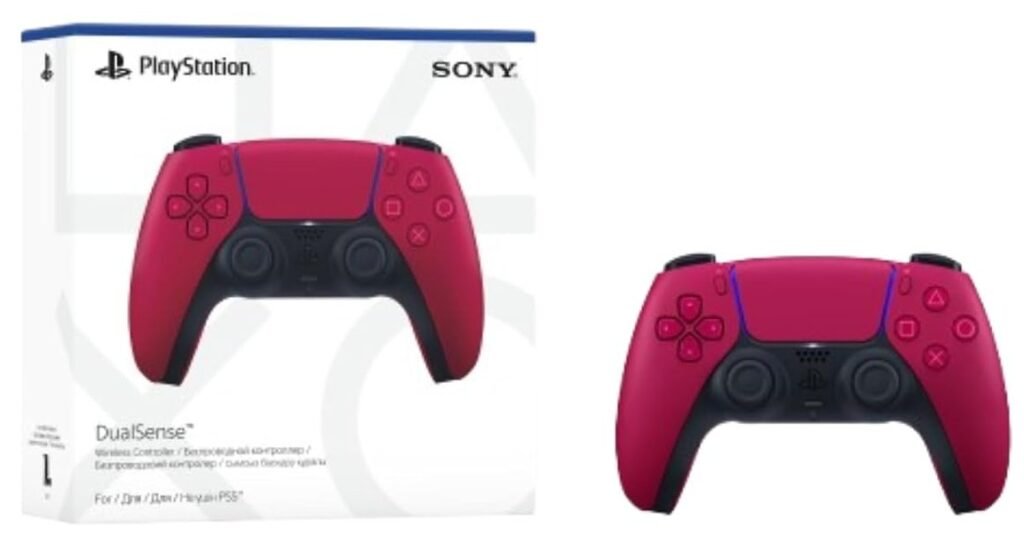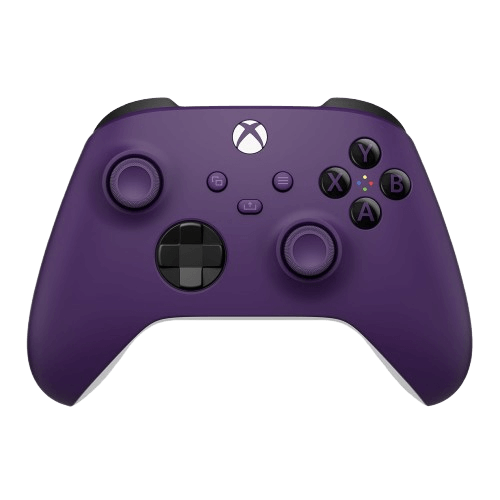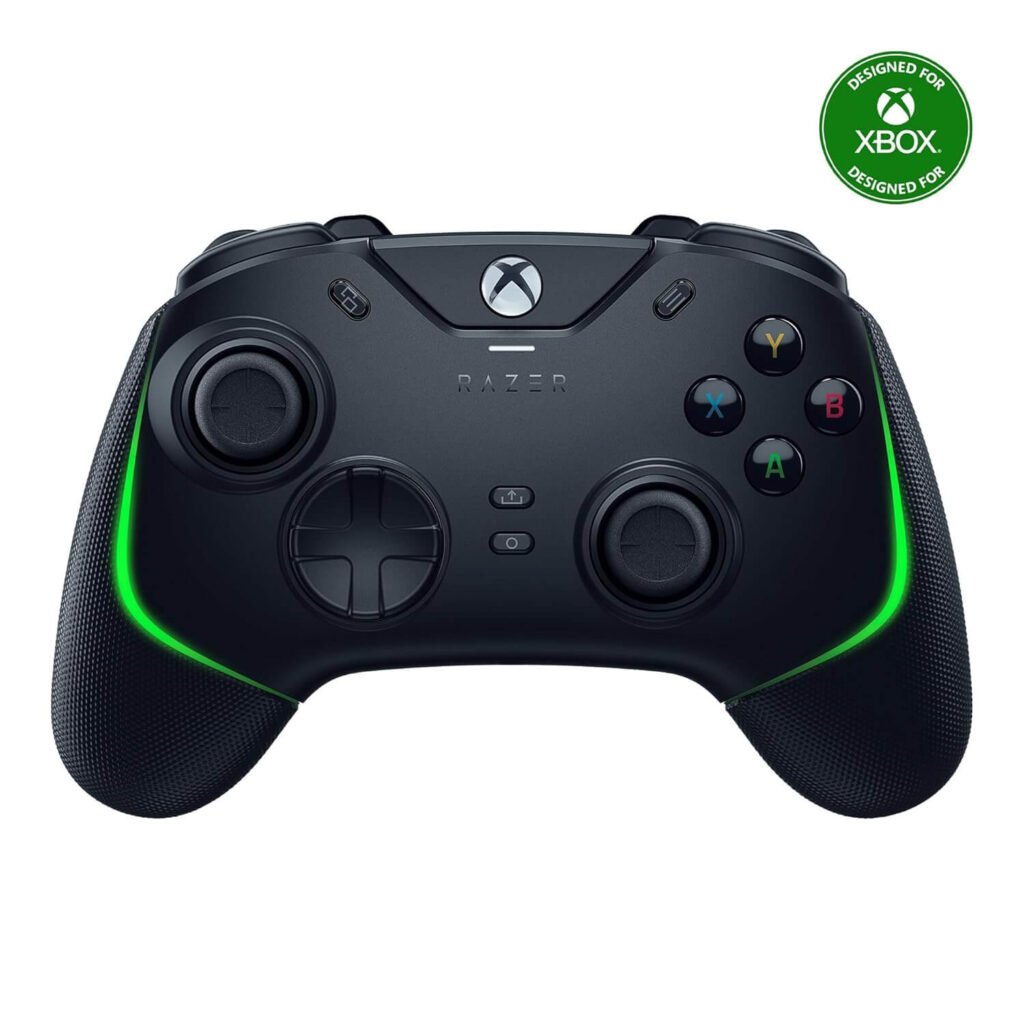More Than Just Buttons: Why the Right Gaming Controller Changes Everything
From casual gaming to competitive play, the right controller isn’t just an accessory—it’s your ultimate advantage.
Ask any seasoned gamer, and they’ll tell you—your controller can make or break your game.
It might look like just a hunk of plastic and circuitry, but the right gaming controller is an extension of your hands, your reflexes, and your instincts. It’s what connects you to your digital world, whether you’re navigating hostile alien planets, racing through post-apocalyptic streets, or just trying to score that game-winning goal in FIFA.
But not all controllers are created equal. And in a world where milliseconds count and comfort means everything, investing in the right controller isn’t just smart—it’s essential.
Why Your Gaming Controller Actually Matters
A bad controller doesn’t just ruin immersion—it ruins gameplay. Sticky buttons, poor ergonomics, laggy response times… these tiny flaws add up. If you’ve ever lost a match because your character didn’t dodge in time or missed a crucial headshot, your controller may be partially to blame.
The right controller, on the other hand, enhances your performance. Think:
Seamless button layout
Responsive analog sticks
Comfortable grips for marathon sessions
Customizable features for competitive edge
Whether you’re on PlayStation, Xbox, PC, or even mobile, choosing a controller that suits your style of play and type of games can elevate your experience from casual to pro-level.
Console-Specific? Or Universal?
If you’re loyal to a platform (say, PlayStation or Xbox), you’re probably used to the default controllers—and honestly, they’re pretty great. But third-party or pro-grade alternatives often offer features that standard models don’t: trigger stops, customizable sensitivity, swappable sticks, and more.
For PC gamers, the options explode. You can go for console-style controllers or dive into advanced models designed for esports-level precision. Some even let you switch profiles depending on the game—like a high-sensitivity setup for shooters and a relaxed, smooth mode for adventure games.
And for mobile gamers? Clip-on controllers like the Backbone or Razer Kishi are redefining portable play, offering console-quality control on a smartphone.
Key Features That Actually Make a Difference
Forget the fluff—here’s what to really look for when choosing a gaming controller:
Ergonomics: You’ll be holding this thing for hours. Look for curves that match your hand shape and textured grips that prevent slipping.
Input latency: Wired controllers often have the lowest latency, but high-end wireless models are catching up fast.
Customization: Programmable buttons, adjustable triggers, and removable thumbsticks can make a real difference in competitive play.
Battery life: For wireless controllers, long battery life is key—especially if you’re traveling or hate pausing mid-game to recharge.
Compatibility: Make sure it works not just with your device, but also with your games. Some titles are optimized for specific controller types.
Why Competitive Gamers Swear by Pro Controllers
Ever wondered why some players seem faster, more precise, and nearly impossible to beat?
Sure, part of it is skill. But part of it is gear.
Pro controllers like the Xbox Elite Series 2 or SCUF Reflex aren’t just for show. They come with adjustable tension thumbsticks, back paddles for extra inputs, hair-trigger locks for faster shooting, and software for fine-tuning every setting.
If you’re serious about competitive gaming—or just want to close the gap between casual and skilled—these controllers can give you that edge.
The Downside? Yeah, There’s That Too
Let’s be real—premium controllers aren’t cheap. High-end models can cost 2–3 times more than a standard one.
Also, with all those extra buttons and options, there’s a learning curve. Some players actually perform worse until they adjust.
And while wireless controllers offer convenience, they can suffer from occasional lag or disconnection issues—especially in crowded wireless environments.
But for most players, these drawbacks are minor compared to the benefits of better control, more comfort, and a performance boost.
Gaming Controllers Are Evolving—So Should You
Controllers are no longer just “accessories.” They’re finely tuned tools designed for precision, comfort, and speed.
Whether you’re a casual weekend warrior or climbing the ranks in esports, investing in a controller that suits your needs, hands, and habits is one of the best moves you can make.
And with more innovation on the horizon—adaptive triggers, haptic feedback, modular designs—the future of game control looks more immersive than ever.
Upgrade Your Game by Upgrading Your Gear
You don’t have to be a pro gamer to deserve pro-quality tools.
Choosing the right gaming controller isn’t about hype—it’s about having control in every sense of the word. From faster reflexes to greater comfort, from better immersion to smarter strategy, the benefits are undeniable.
So if you’re still using the same old controller that came in the box, ask yourself: is it helping you play better—or holding you back?
Your hands are ready. Isn’t it time your controller was too?


